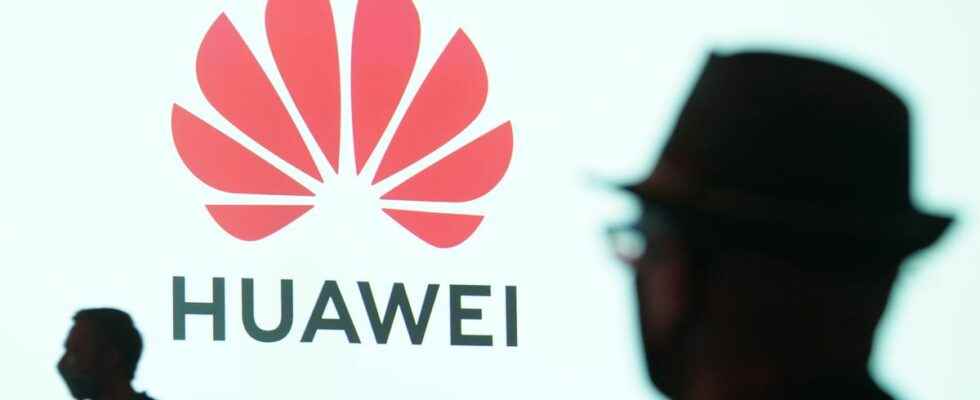Huawei © Getty — Sean Gallup
For Huawei, Europe is no longer a market of the future. If the situation is not as critical on the Old Continent as it has been in the United States since the crusade launched by Donald Trump in 2018, Huawei is no longer in the odor of sanctity on European territory. Therefore, the Chinese giant, which briefly became the world’s largest smartphone seller in 2020, is reducing the car in Europe, “a continent it once considered its most strategic foreign market”to retreat to the Chinese market, according to a survey by Politico. “It’s no longer a company surfing on globalization. It’s a company that saves its ass in its domestic market”summarizes a Huawei official interviewed by the American media.
Now, Huawei’s focus on Europe is limited to a handful of countries like Germany, where the group has based its headquarters in Düsseldorf to drive its business in Western Europe, and Poland, where an executive superior based in Warsaw is in charge of Eastern Europe and the Nordic countries. The Chinese company also relies on Spain and Hungary.
The offices of Brussels, Paris and London emptied of their leaders
By contrast, Huawei has turned away from Brussels, a city where tech heavyweights are usually well represented, armies of lobbyists seeking to influence new regulations outlined for the European Commission. Thus, the group’s Brussels office was emptied. Communications manager Phil Herd, a former BBC journalist who joined the company in 2019, left the Belgian branch this summer, while Jin Yong, the chief representative to Brussels institutions, now spends the most clear of his time in the Düsseldorf office handling government affairs throughout Western Europe.
Brussels is not the only victim of Huawei’s European restructuring. In London, UK communications director Paul Harrison stepped down in October. A month earlier, his French counterpart, Stéphane Curtelin, did the same. The Paris office also lost its boss, Linda Han, as well as its head of government affairs and security. As a reminder, the French Parliament adopted in the summer of 2019 the law on the security of mobile networks, known as “anti-Huawei”. This dampened the hopes of the Shenzhen group, which saw itself as a major player in the deployment of 5G in France, to the chagrin of SFR and Bouygues Telecom, which until then had used the Chinese company’s equipment for their mobile network.
The return to China of Meng Wanzhou, the event that changed everything
Behind the scenes, Huawei executives interviewed by Politico believe that this wave of departures from the group’s European offices reflects “a radical changebegan in September 2021. The date coincides with the return to China of Meng Wanzhou, chief financial officer and daughter of Ren Zhengfei, founder of Huawei. Meng Wanzhou had previously spent three years under house arrest in Canada after being accused of lying intended to circumvent US sanctions against Iran, an offense punishable by more than 30 years in prison in the United States, to which she was threatened with extradition. “The moment Meng got off the plane was the moment the globalist Huawei died”said a company official.
Returning to the fold, the leader joined Huawei’s top three and initiated a reshuffle at the top of the company. With this in mind, the global communications department is now represented on the board by Peng Bo, the former president of Huawei’s Western Europe region, a way to bring European operations closer to the Shenzhen HQ.
Ren Zhengfei warns that Huawei will “abandon markets in some countries”
In a speech to the group’s leaders this summer, Ren Zhengfei, citing Washington’s hostility, the Covid-19 pandemic and Russia’s invasion of Ukraine as the main challenges to overcome over the past three years, felt it was time to take a different stance. “We used to have an ideal of globalization striving to serve all of humanity. What is our ideal today? Survival!”, he had launched. In this context, the founder of Huawei had made it known that the company was counting “abandon markets in some countries”especially those of Five Eyes (the “Five Eyes” in French, editor’s note), an alliance between the intelligence services of the United States, Canada, the United Kingdom, Australia and New Zealand.
Countries particularly hostile to the Chinese group, which has been banned from their critical telecom infrastructures in the name of “national security“. In the United States, where the arrival of Joe Biden in power had given some hope to Huawei, the situation has not improved. The American president has even hardened his tone with regard to the company. moreover on the list of the Federal Communications Commission (FCC), the American regulator of technologies, which prohibits the sale of new equipment from several Chinese companies, including Huawei.
Under these conditions, the firm with red petals is reviewing its priorities. What if William Tian, the boss of Huawei Europe, assured the Digital at VivaTech that the group intended to return “to be as strong as before” on the Old Continent, it is with more limited political levers than ever that it will have to try to achieve this.
